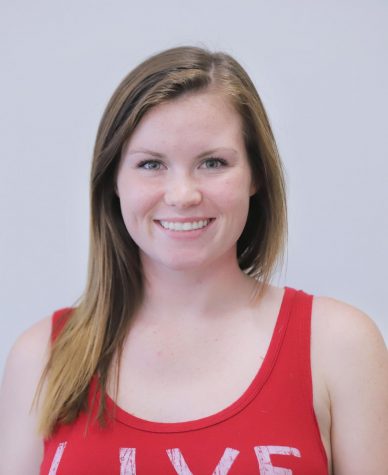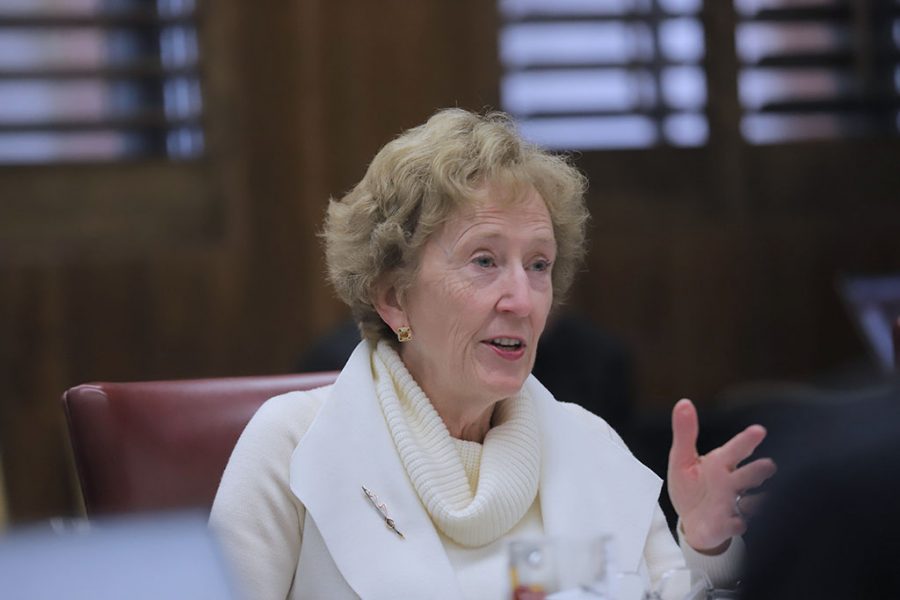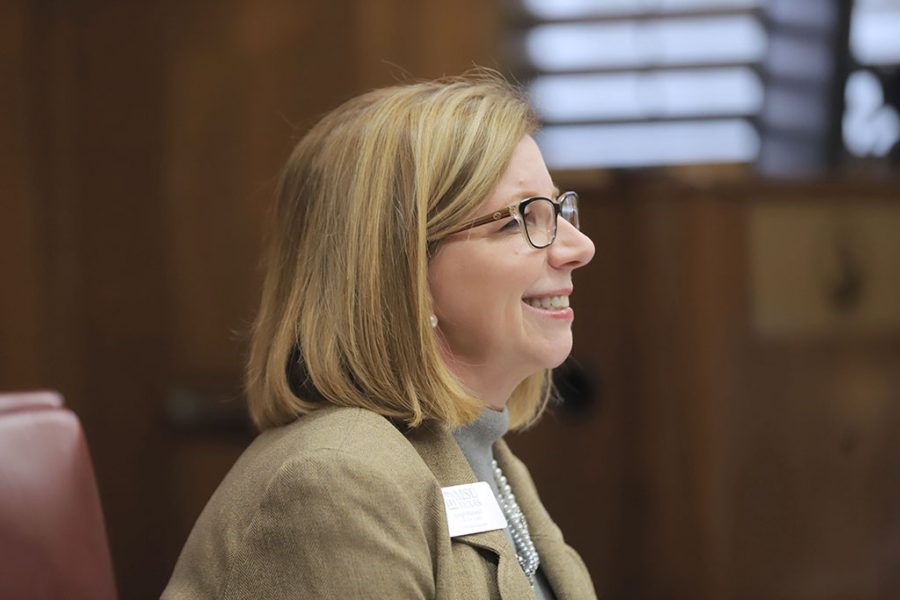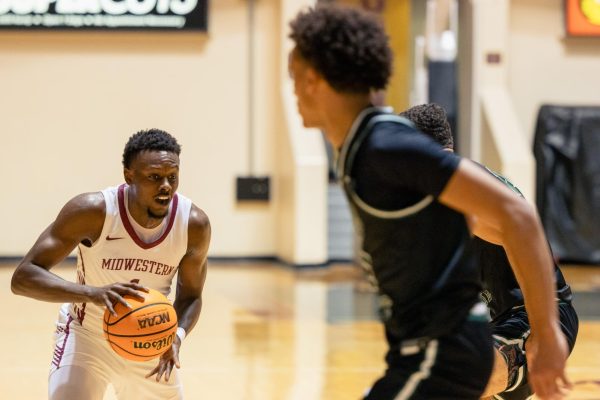Board of Regents meeting: the recap
President Suzanne Shipley talks about keeping the change to professors mandatory office hours from 10hrs to 5hrs per week at the Board of Regents meeting. Nov. 7. Photo by Bridget Reilly
Comprehensive campaign
In a continuation of the campaign, the university is on track to blow right past their initial goal of $50 million and their goal for the year.
Shipley said, “My goal for this year was nine million so we are way ahead of where we thought we’d be.”
The campaign is way past the original goal and is standing at a whopping $61 million.
“Our big gifts should be done, yet they keep showing up,” Shipley said.”So it just depends. We have an ask-out for a football stadium [and] if that were to happen, we would far exceed the nine million.”
Shipley also said the school’s endowment topped $88 million and a lot of the money received has been student-oriented.
“Five million dollars came in for the Priddy scholars. That’s 40 first-generation students that get to go here for free,” Shipley said. “Another gift that came in was software for our geoscience of petroleum and geology students. We had quite a few scholarships come in so you don’t see it yourself unless you are a recipient, but a lot of students get help from that.”
In a previous interview, Tony Vidmar, vice president of university advancement and public affairs, said, “We wouldn’t have the Priddy scholars if we didn’t have the campaign most likely. The Priddy Scholars Program was a direct result of a conversation that Dr. Shipley had with leaders of the Priddy Foundation.”
Construction
According to Shipley, renovations are being finished for the tuition revenue bonds which is what was used to build the Health Science Center. Some of that fund is also being used to finish Moffett Library which will be done in March or April. Renovations are also being done to Bridwell.
“So the inside of Bridwell is being shifted and Education will move in there,” Shipley said. “After that Ferguson will get renovated and then next there are [renovations to] Daniel and Bolin. Bolin will have a renovation, we don’t know how big yet and Daniel will have a renovation for Greek life.”
There’s a facility building being built and students may see some things will move out of Clark Student Center and into Ferguson. The core of student services will be in one place so students aren’t running from building-to-building to get things done.
“There is a terrific number of dominos falling,” Shipley said. “The next thing you’ll see happen is the pedestrianization of the campus. From the library on over, there [will be] no cars just like the Jesse Rodgers Promenade. More and more you’ll see the driving on campus get pushed out to the edges. It’s interesting and it’s safer for students that way. It takes some time to make all that happen but it’s in the plans.”
Purchased property
The Univerisity approved the purchase of property located at 2733 Midwestern Parkway in Wichita Falls, Texas.
Shipley said, “It was approved and it’s a bank building. It’s got a lot of open space and we’re putting contracting and purchasing and a lot of our storage there. So when you move out of the Daniel building where you have all those big bay areas to put the furniture that’s in transition and other things in transition will go there.”
International students
‘Tier 2’ is the tuition cost for students who are not residents of Texas who want to come to school at MSU. Tuition for students who are Texas residents is lower than the tuition for students who are non-Texas residents.
“Tier 3 is out of state tuition which is our international tuition. Tier 2 is in-state tuition plus $90 per credit hour and that is a discount on international enrollment,” Shipley said. “We offered it, but we capped it so that we didn’t discount our price too much. We do so much recruiting in developing nations where students can’t afford a full out-of-state rate that we want to be able to attract a varied student body and an international student body. We need that price difference to do that.”
Agents are hired to make deals with other countries to increase student enrollment. When tuition gets discounted, the amount of money that would be lost is made up of extra students who enroll because of the discounted price.
“[If] we get 600 students, it won’t matter how much discount there is because there will be so much more revenue,” Shipley said. “It allows us to make contracts with whole countries or islands. You might go to an island and work with their government and say ‘we can have your island students here for this price, not the price you see for normal international students.’ Our most robust international student-population is always from the Caribbean. We do have Pakistani and Indian students that like to study computer science with us but the rules change on who gets in and who doesn’t. You’re always changing your recruiting based on who we think [the Government] will let in.”

Kristin Silva is the former Chief Editor at The Wichitan.
She began her journey in Spring 2018 as a reporter who dabbled in photography for a short...

Heya! My name starts with Bridget and ends in Reilly. I moved to Wichita Falls five years ago from New South Wales, Australia. In December 2020 I will...









